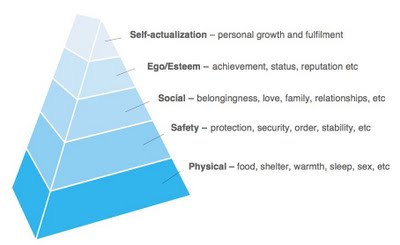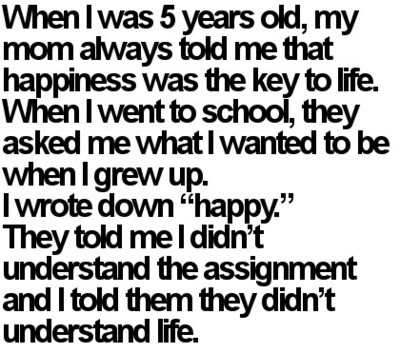When researchers at the London School of Economics examined the relationship between volunteering and measures of happiness, they found the more people volunteered, the happier they were. - Simple Changes, Big Rewards: A practical, easy guide for healthy, happy living.
While there are many factors that lead to happiness, research proves that volunteering definitely makes people happier (and even healthier).
So why does volunteering make you happier?
Research shows that volunteering will help you live longer, and that should be cause enough to make you happy. But there are other reasons as to why volunteering makes you happier… here are 3 leading theories as to why:
1. Giving Time Makes You Feel That You Have More Time
“Not having enough time” is considered one of the biggest stressors and detractors of happiness. However, the feeling of having more time lower stress.
A long line of empirical research, including one study of over 2,000 people, has shown that acts of altruism—giving to friends and strangers alike—decrease stress and strongly contribute to enhanced mental health.
While not necessarily intuitive, giving your time to others will likely benefit you as much as any other party. A study from Harvard Wharton, and Yale, ‘Giving Times Gives You Time‘, summarizes the benefits nicely:
Happier people give more and giving makes people happier, such that happiness and giving may operate in a positive feedback loop (with happier people giving more, getting happier, and giving even more).
Counter-intuitive as it may be, volunteering increases your perception of how much time you have, and lowers your stress in the process.
2. Volunteering Creates Social Bonds That Make You Feel Loved
Social relationships are described as ‘perhaps’ the ‘greatest single cause’ of happiness. - Michael Argyle, The Psychology of Happiness
 In 1943, Maslow released his groundbreaking research that we now know as the “Hierarchy of Needs”. In it, he hypothesized that after safety, the thing that people need most is “Emotional Belonging”
In 1943, Maslow released his groundbreaking research that we now know as the “Hierarchy of Needs”. In it, he hypothesized that after safety, the thing that people need most is “Emotional Belonging”According to Maslow, humans need to feel a sense of belonging and acceptance among their social groups, regardless if these groups are large or small.
Spending time volunteering creates bonds with fellow volunteers, organizations hosting volunteers, and the beneficiaries. The social bonds created during volunteering contribute directly to feelings of belonging.
According to research from University of Minnesota, volunteering also creates social capital which leads to more interaction, engagement, and trust with the people that you volunteer with.
“We must cultivate the science of human relationships – the ability of all people, of all kinds, to live together and work together.” —Franklin D. Roosevelt
3. Volunteering Extends Empathy; Empathy Leads to Life Satisfaction
Jeremy Rifkin, a best-selling author, has a wildly popular video and book called ‘The Empathic Civilization‘. He argues that the only way we can truly create a sustainable and healthy planet is by extending empathy across borders. By doing so, he explains that you will create relationships which ultimately lead to happiness.
When people go Experteering through MovingWorlds, they consistently report that “creating new friendships” and “spending time with locals” are some of the biggest contributors to positive experiences while volunteering their skills overseas.
In the “6 Habits of Highly Empathic People“, Roman Krznaric shares that empathy creates the social glue that will hold our societies together, and that 98% of people have the ability to be empathic. His research shows that of all people, the most empathic are also committed to social change
Highly Empathic People understand that empathy can also be a mass phenomenon that brings about fundamental social change.
By engaging in social change, Roman quotes happiness guru Martin Seligman who identifies empathy as a key character strength that can enhance life satisfaction, and with it, happiness.
Volunteering always makes me feel better. It quite often is a positive coping mechanism for me when I am feeling down. There isn't anything quite like the feeling of helping someone or something in need. I enjoy volunteering for several organizations: American Red Cross, Wayside Waifs, SW Johnson County CERT and United Way. There are so many great organizations to volunteer for! If you would like to volunteer but are not sure where to begin, here is a good resource: Volunteer Match - http://www.volunteermatch.org/. By submitting your interests you can find an organization that best fits your interests as well as a non-profits needs. Get out there and make a difference in your life and others!








